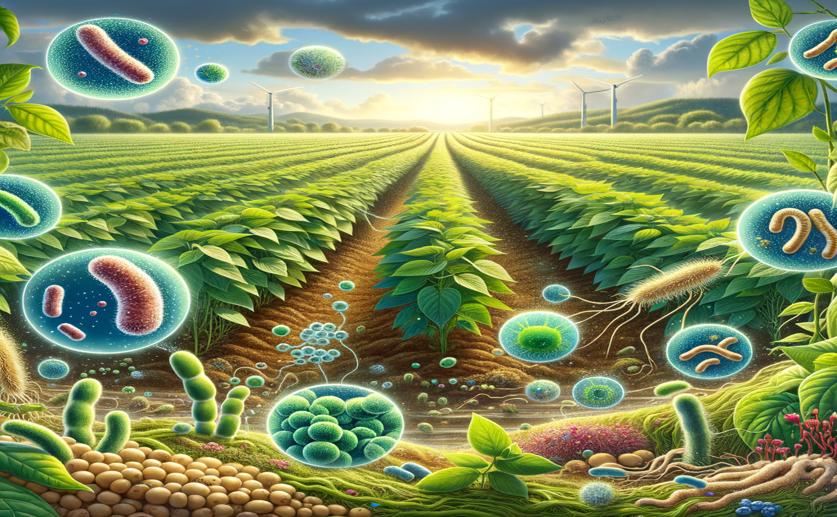
How Microbes and Metabolism Interact in Soybean Fields
Jenn Hoskins
31st March, 2024

Image Source: Natural Science News, 2024
Key Findings
- In Northeast China, continuous soybean cropping reduces yield compared to crop rotation
- Continuous cropping alters soil chemistry, increasing nitrogen but decreasing pH and other nutrients
- Specific beneficial soil microbes linked to higher yields are more abundant in crop rotation systems
References
Main Study
1) Combined metagenomics and metabolomic analysis of microbial community structure and metabolic function in continuous soybean cropping soils of Songnen Plain, China
Published 29th March, 2024
https://doi.org/10.1186/s40538-024-00569-x
Related Studies
2) Soybean continuous cropping affects yield by changing soil chemical properties and microbial community richness.
3) Response of Soil Fungal Community Structure to Long-Term Continuous Soybean Cropping.
4) Archaeal communities perform an important role in maintaining microbial stability under long term continuous cropping systems.
5) Rhizosphere Soil Bacterial Communities of Continuous Cropping-Tolerant and Sensitive Soybean Genotypes Respond Differently to Long-Term Continuous Cropping in Mollisols.



 28th March, 2024 | Jim Crocker
28th March, 2024 | Jim Crocker